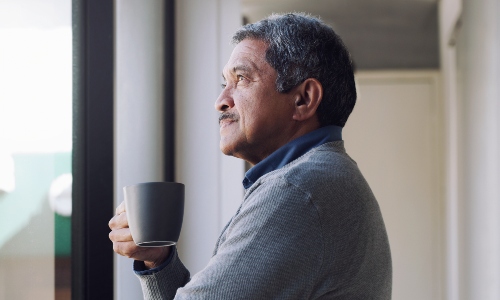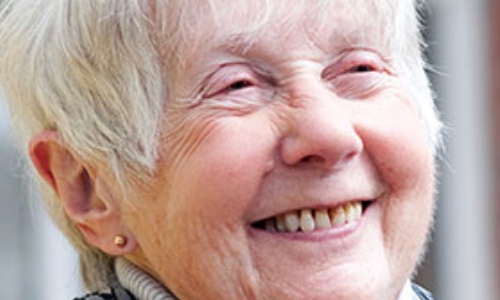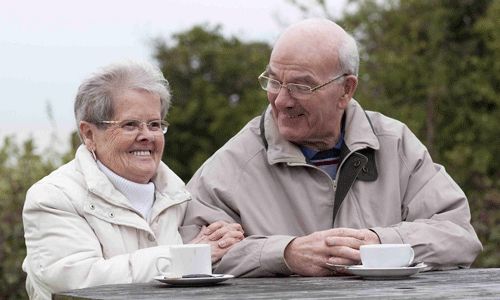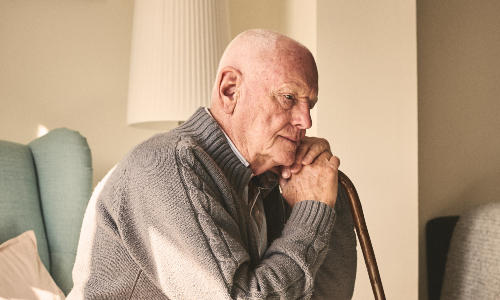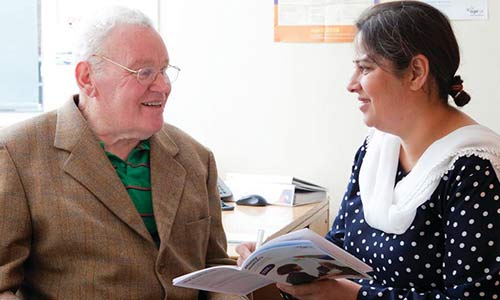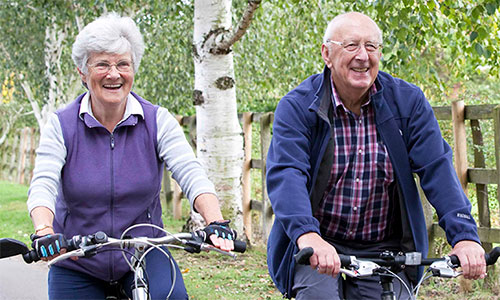The IAPT (Improving Access to Psychological Therapies) programme was developed to provide talking therapies for those with anxiety disorders and depression. It aims to better people’s mental health by looking at methods of coping.
But while the programme was created with all ages in mind, there are less over-65s using the service than any other group (just 7% of referrals), despite boasting some of the most encouraging results.
Age UK commissioned some research to find out why. The research showed there were three main reasons why older people weren’t accessing the help available to them.
However, the research also highlighted that older people who are aware of these therapies believe they would be helpful for patients of any age, whose mental health issues are having a negative impact on their day-to-day life. So Age UK are working in partnership with the NHS in a campaign to encourage older people to start the conversation about their mental health and raise awareness of talking therapies, such as the IAPT programme.
Older people don’t want to talk about their mental health
Even though in recent years open conversations about mental health have become more common, our research showed that ingrained attitudes towards mental health are preventing older people from seeking help. Older people associate the term ‘mental health’ with being labelled ‘crazy’, so are reluctant to discuss their feelings, particularly with a professional.
“Talking about mental health with older people is difficult, because if you say ‘mentally ill’ they assume a Victorian mental hospital from their upbringing,” says Mark in the video below.
These generational perceptions coupled with the view that mental health wasn’t something discussed, you were instead expected to ‘just get on with things’, still very much acts as an obstacle for people of a certain age. This campaign aims to highlight that times have changed, and these conversations can and should be happening more and more for those that are experiencing low mood. Things that were once not to be discussed, can now be discussed openly.
It’s not always that simple, though. It’s not always easy to open up, and changing these perceptions overnight can be tricky. So there is a responsibility for others, especially health professionals, to demonstrate how times have changed and help create an environment that makes these conversations easier for those experiencing low mood, anxiety and depression.
Low mood seen as a natural part of ageing
The research also showed a majority of older people don’t seek help for mental health problems as they feel low mood is just a natural part of ageing. But being worried, low and out of sorts aren’t just part and parcel of getting older – they’re important signs that someone’s not feeling as well as they could be.
Dr Nadia Llanwarne, a GP specialising in older people’s mental health, tells Age UK that “living alone, social isolation, a recent bereavement or being a carer to a relative or partner are all risk factors for developing a mental health problem” in the video below.
It’s not our age that affects our mental health, but some of life’s challenges just tend to become more common as we get older. This campaign aims to highlight what help is available to help deal with these challenges, and how you can cope with feelings of low mood and anxiety, even as we get older.
Mental health considered less important than physical?
Only around 1 in 10 people who took part in the research said they would put their mental health before their physical health.
Older people’s health is often complex. The number of people living with long-term conditions is increasing – just over half of people aged 65-74 live with at least one long-term health condition, increasing to nearly two-thirds of those aged 85 and over. For some older people, treating these types of conditions is a priority and seen as more important than their mental health.
In addition to this, many older people don’t realise they have a mental health issue because they’ve only noticed physical symptoms, such as feeling tired all the time, an increased heart rate, feeling dizzy or sick, and moving or talking slower than usual. These symptoms can all be signs of a mental health problem, but are often mistaken for other health conditions, such as high blood pressure.
“I don’t think my mind was open to the fact I might have a mental health problem," says Martin in the video below.
This campaign highlights the important role healthcare professionals play in helping older people focus on these physical sensations as potential symptoms of mental health problems.
Mental health and physical health are interlinked
Read our tips on how to look after both your physical and mental health.
How Age UK helps older people with their mental health
With mental health becoming a more prominent part of the healthcare agenda, it is ever more important that effective treatments are accessible regardless of age.
Age UK, alongside the NHS, are trying to break down these barriers and raise awareness of talking therapies, like the IAPT programme. These involve talking to someone who is specially trained to help people manage their thoughts and feelings and the effects they have on their moods.
Our research showed that older people who are aware of these therapies believe they would be helpful for patients of any age, whose mental health issues are having a negative impact on their day-to-day life. Age UK are encouraging older people to start the conversation about their mental health, so they can get the help they need.
As a society, we all need to talk more about mental health and not just accept that depression is just a part of life. In doing so, older people must not be left behind.
Talking therapies are proven to work – and they can work particularly well for people. You can refer yourself to see if your local service can help, or your doctor or nurse can do it for you if you prefer. Even if you’ve tried them before and weren’t sure, you can give talking therapies another go.
An expert perspective
Heather Stonebank, Lead Psychological Wellbeing Practitioner for Sheffield Improving Access to Psychological Therapies Service (IAPT), discusses the importance of talking therapies for older people's mental health.


